So you’ve decided that since exams are coming up, it might be time to do some studying. Those past papers are sitting in a dusty corner of the internet (well, the NZQA website, if we’re being accurate here) and you’re purposefully ignoring them, because they sound both boring, and terrifying. You’re probably thinking about excessively highlighting your notes instead, right?
First of all, we’re here to tell you that you should definitely stop the excessive highlighting, and start doing some practice questions. Secondly, past papers are the most effective way to prepare for your exams. While they might be more confusing than the practice questions you get in class, the best way to prepare for those types of questions, is to practice them.
With that being said, here are all the reasons why you should open some past papers. We’ve broken past papers down so that you don’t have to – and you’ll be able to save time, and study effectively, so that you can ace your exams, and enjoy your summer.
You heard it here first – the mystery of past papers is finally solved.
Let’s get into it.
1. Attempt a Past Paper Under Full Exam Conditions
The first thing to do, and it sounds pretty obvious, is to attempt a past paper. However, you should be doing this under full exam conditions.
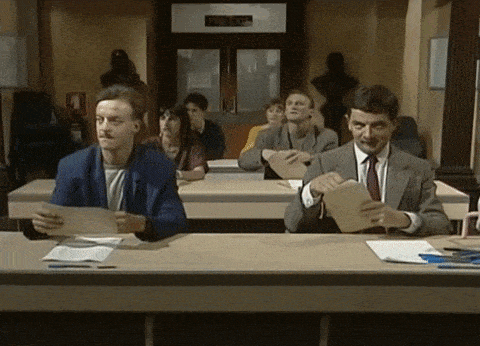
We know you’d much rather have a snack, blast some music, and have regular breaks when you get bored to pat your dog or annoy your siblings… but the best way to prepare yourself for an exam is to put yourself under those conditions.
You might have heard the term “exam conditions” thrown around before, but here’s how you can replicate them in your own house:
- Put your phone on silent, or put it somewhere where you won’t be distracted. (It sucks, but Snapchat really isn’t going to help)
- Set a timer, and stick to it. Creating a realistic time pressure will help you to figure out whether you need to work on time management in your exams, or whether you’ve got extra time to think through your answers.
- Print out the exam paper if you can, or just write your answers on a refill. This will make sure that you’re practising being able to physically write an exam within the allocated time, which is honestly an underrated skill.
- Get rid of your notes, and resist the urge to google things that pop up in the exam paper that might confuse you. At this point, everything should be coming out of your brain.
- Turn off the music, and get rid of those snacks. You can get back to those afterwards.
And I mean, if you really want to put yourself in a realistic situation, you can always chuck your phone in a ziplock bag under the dining room table. We’re not going to judge.
What you can do if you’re feeling lazy:
If you don’t have time to (or can’t) write full answers to the exam questions, write down a few bullet points of what you think the answer should include. This isn’t ideal, because you’re not practising your writing skills (which are especially important for those tricky excellence parts, and writing-based subjects such as English or Biology). However, if you’re running out of time, writing bullet point answers means you can at least check if you’re on the right track.
2. Create a Realistic Time Pressure
The next tip we have is to time yourself. Doing the past paper under exam conditions means you’re essentially “taking the exam” with everything that’s in your brain at the time. This is a great way to see how much you actually know, rather than thinking that you know it all, and finding out later.
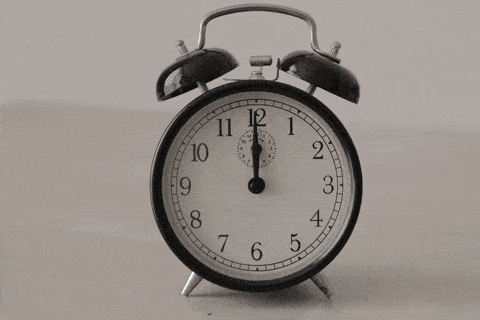
You might think you know all the definitions, but under time pressure, you might find yourself getting distracted, or taking too long to remember what they’re asking you about in the first place. Practising under the exam conditions, with a realistic time pressure, means you’ll eventually be able to sit your actual exam without worrying about the clock.
This is great practice for the real thing, because the best way to get better at exams, is to actually do them. Crazy, right?
3. Do The Same Past Paper With Your Notes Handy
Okay, so you survived your first past paper (under those crazy exam conditions) and you’ve had a break to let your brain recover. Now it’s time for an easier task.
Do the exact same paper, but this time have your notes nearby (and those photos of the whiteboard that have been sitting in your phone for weeks). It might help to use a different coloured pen, so that you can see what you’ve added, and what you originally wrote.
Doing the paper again with your notes allows you to practice applying your knowledge to different situations, even if you haven’t quite memorised all of those definitions yet! This is a really useful skill to practice, and you’ll probably memorise some of the content while you’re at it too!
4. Use The Assessment Schedule To Mark Your Work
Once you’ve gone through the past paper, use the assessment schedule to mark your work. This might seem really boring, but it’s the most important part of studying with past papers.
When you mark your own work (using the very thing that your examiner will be using!) you’re looking at an exam from their perspective. This means you’ll be even better at writing really good answers, because you’ll start to see what the examiner is looking for. It’s much easier to chase that endorsement when you know what your examiner wants to see.

Our best tip for marking your work is to use the assessment schedule. This way, you know that you’re giving yourself realistic marks, and if you miss out, you can see exactly what you needed to include to get Achieved, Merit, or Excellence.
If you’re doing calculation based questions, and you get them wrong, go back and try it once you’ve seen the answer. Or see if you can work backwards. Think of it as programming your brain to do the right method, and you’re problem-solving too when you work backwards to figure how to get the right answer.
5. Write Down The Concepts That Need More Practice
Once you’ve done a past paper, and you’ve figured out what you aced, write down the concepts that need more work. We all have those few things that we completely forget about, and they always manage to pop up in exams when we least expect it.
We have a template for our ‘practice exam form’ which has a really easy print out for you to use. Essentially, you can write down all your problem areas, and come up with a strategy to work on them in the future.
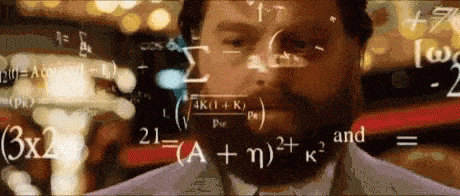
This might seem really tedious and boring, but we promise it’s not a waste of time. When you identify problem areas, and write down concepts that need improvement, you’re essentially building a personalised study plan. This way, you’re only studying what needs work, and you can save time because you’re not cramming everything at once, or highlighting every single page in your book.
Once you’ve identified these difficult areas, you can use resources to revise this content, and do practice questions on this specific area within a subject.
If you’re looking for resources to study with, we recommend using the StudyTime Walkthrough Guides, which break down concepts using easy to understand language, so you won’t fall asleep while paging through an old textbook.
6. How to Get Excellence Using Past Papers
Often, past papers can be the best source of that excellence-worthy content. While NCEA can be a bit of a mess sometimes, the best way to figure out what the examiner is looking for is to use the assessment schedule.
Once you’ve looked at the excellence sections of the assessment schedules for each past paper you complete, have a look at our “excellence question planner” which is designed to help you master those excellence questions and chase that endorsement.

The best way to use this planner is to go through a few past papers, and write down common excellence level knowledge that you need to have, as well as specific terminology, common concepts, and things that you need to remember. Basically, this planner becomes a cheat sheet for your exams, and you can use it to keep track of everything you need to work on to get excellence.
7. How to Use Past Papers as a Cheat Sheet For Your Exams
So you’ve done a few past papers, and you think you’ve got the hang of it. Here are our last few tips for really making the most of past papers, so that you can use them to form a “cheat sheet” for your exams.
Look, we weren’t lying when we said that past papers really are the key to getting the most out of the least amount of work! If you study with past papers and make the most of them, you’ll be all set to ace your exams.
Look for Common Concepts Across the Past Papers
Go through the last few years (we usually do 3 years) and write down each main concept that pops up. If you’re confused about the ‘main concepts’ for your specific exam paper, have a look at our StudyTime Checklists, which summarise each exam, and break it down into the main concepts that you’ll need to know.
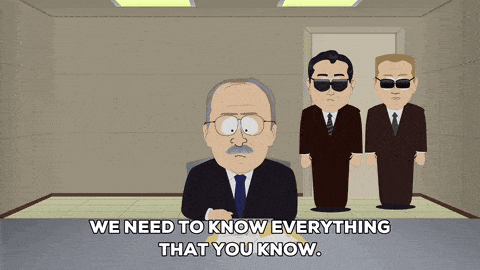
Once you make a list of main concepts in each exam paper for the past 3 years, you’ll notice that the same concepts are repeated each year. The most common concepts are the ones that you should focus on. It’s not guaranteed that you’ll be asked those questions in your exam, but they’re your safest bet, and those are the most important things to focus on when you’re cramming for your exams.
Learn to Look at Questions Conceptually Instead of Individually
Obviously, each exam question is completely different. However, that doesn’t mean you need to rack your brain every time you encounter a new question in an exam. Even if the context of a question is completely unfamiliar, you know that each question is asking you to talk about one of the main concepts in the topic.
If you learn to identify the key concepts that each question is tackling, then you’ll know what your examiner is looking for (whatever the situation).
Remember, you still need to answer the specific question you’re given (this means including specific evidence from the exam question instead of just giving broad definitions) but you’ll be able to easily identify which definitions you’ll need to include, and which concepts you should write about.

Learn to look at questions beyond the tricky wording and specific details (especially with biology!) and find the common themes within these questions.
Whether it’s a person rollerskating or a car driving around a corner, you’ll learn how to identify what you need to know, apply your knowledge to any situation, and you’ll be fully prepared to answer any weird questions that are thrown your way.
Reflect After Doing a Past Paper
Instead of simply doing a past paper and moving on, take a few minutes to go through your answers and reflect on what you’ve done. This way, you’ll be more likely to learn from your mistakes, and you’ll be less likely to make the same mistakes again in the future.
Doing a bunch of past papers is great, but reflection is what makes your studying way more effective. If you’re actively thinking about your answers, and looking at ways to improve, then you’re well on your way to acing your exams.
Wrap Up
Whether this is your first time studying for exams, or you’re a Year 13 student reading this instead of facing your final exam season (hang in there, freedom isn’t far away) you now have a range of tools and techniques to use.
Now that you know exactly how to use past papers, and they’re no longer a weird mystery in the back pages of the NZQA website, you’ll be able to study way more effectively, and hopefully have more time to relax once you’re done.
Good luck for your exams, remember to check those assessment schedules, and we’ll see you on the other side.
You’ve got this.
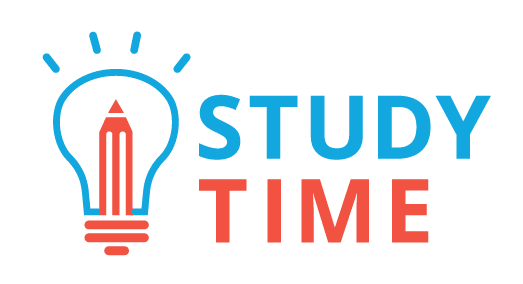
nice